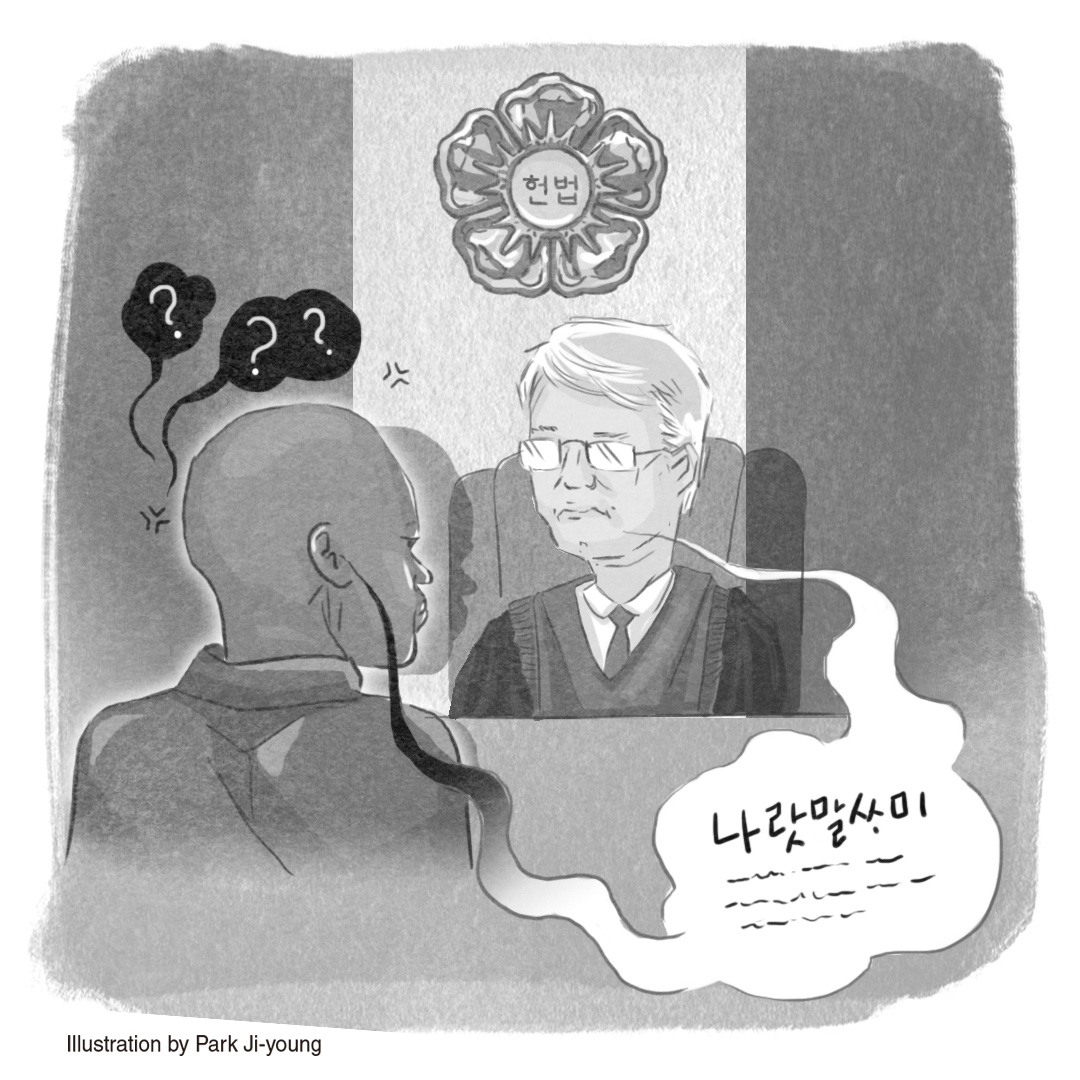According to the law (1): Translation hiccups for foreigners in court
By Yoon Min-sikPublished : April 18, 2022 - 16:41
From international marriages, political asylum to run-ins with the law, there are a myriad of legal problems that foreign nationals can get embroiled in. The Korea Herald takes a look at some of the cases involving legal disputes of foreigners in South Korea. The following is the first installment of a three-part series. -- Ed.
The Act on Citizen Participation in Criminal Trials, introduced in 2008, states that anyone, regardless of nationality, has a right to receive a jury trial. It states that the court must go through a process of confirming if the defendant wants to stand before a jury of citizens or not.
A recent ruling shows that sufficient information on the system must be conveyed, and in the case of foreigners who do not speak Korean, the information must be delivered in a language that they understand.
In December of 2019, two people from Russia and one from Uzbekistan were indicted for battery and tried the following year at Incheon District Court. They were asked whether they wanted a jury trial, but the information about the system was conveyed only in Korean, despite the fact that none of the defendants spoke Korean.
Upon their refusal, they went through a non-jury trial and were found guilty in May 2020. The defendants appealed the case, and said they wanted a jury trial.
The Seoul High Court in an Aug. 25, 2020 ruling sent the case back to the lower court over the court’s failure to provide a Russian translation of the information regarding the jury trial.
The Act on Citizen Participation in Criminal Trials, introduced in 2008, states that anyone, regardless of nationality, has a right to receive a jury trial. It states that the court must go through a process of confirming if the defendant wants to stand before a jury of citizens or not.
A recent ruling shows that sufficient information on the system must be conveyed, and in the case of foreigners who do not speak Korean, the information must be delivered in a language that they understand.
In December of 2019, two people from Russia and one from Uzbekistan were indicted for battery and tried the following year at Incheon District Court. They were asked whether they wanted a jury trial, but the information about the system was conveyed only in Korean, despite the fact that none of the defendants spoke Korean.
Upon their refusal, they went through a non-jury trial and were found guilty in May 2020. The defendants appealed the case, and said they wanted a jury trial.
The Seoul High Court in an Aug. 25, 2020 ruling sent the case back to the lower court over the court’s failure to provide a Russian translation of the information regarding the jury trial.

“(Defendants) were not given a Russian guidebook on the Participatory Trial system or given sufficient information, and they were not given enough time to mull over. ... In spite of this, the court went through the usual court process, which is in violation of the defendants’ right to Participatory Trial. Thus the subsequent ruling must also be void,” the court said, sending the case back to Incheon.
For anyone without sufficient ability to speak Korean, it is crucial to ask for an interpreter in case of legal disputes.
On Thursday, a local media outlet reported a case of two foreign women in their 20s being tried for stealing clothes from the factory they were working at. Although they were freed of all charges at court after a 15-month legal dispute, it was revealed that the police officers did not provide interpretation during the investigation, leading them to mistakenly confess to theft.
Article 217 of the South Korean police’s Criminal Procedure states that an investigator must provide interpretation for foreigners when they are unable to communicate fluently in Korean. In collaboration with Danuri Call Center (1577-1366) -- a hotline providing consultation and support for immigrant women victimized by violence -- local police provide interpretation services in 13 different languages for foreign victims of sex crimes.
By Yoon Min-sik(minsikyoon@heraldcorp.com)



















![[Today’s K-pop] Treasure to publish magazine for debut anniversary](http://res.heraldm.com/phpwas/restmb_idxmake.php?idx=642&simg=/content/image/2024/07/26/20240726050551_0.jpg&u=)